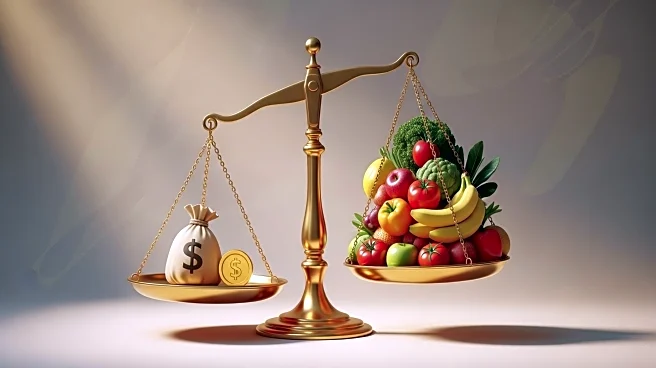What's Happening?
The UK's inflation rate has remained steady at 3.8% for August, with food prices rising at an annual rate of 5.1%, marking the highest increase in 18 months. The British Retail Consortium (BRC) noted that food costs are outpacing average wage growth, which reached 4.7% between May and July. Economists attribute the rise in food prices to supermarkets passing on government increases in the minimum wage and National Insurance Contributions to consumers. Despite the overall inflation rate remaining unchanged, the surge in food prices is causing financial strain for many families.
Why It's Important?
The persistent rise in food prices amidst steady inflation highlights the economic challenges faced by UK households, particularly those with lower incomes. The disparity between wage growth and food inflation is exacerbating the cost of living crisis, leading to increased financial pressure on families. The situation underscores the impact of domestic policy choices on inflation and the broader economic landscape, with potential implications for interest rate decisions by the Bank of England.
What's Next?
The Bank of England is expected to hold interest rates steady in its upcoming meeting, with further rate-setting meetings scheduled for November and December. The central bank anticipates inflation to peak at 4% in September, which could influence future monetary policy decisions. Economists predict that food inflation may continue to rise towards the end of the year, potentially affecting consumer spending and economic stability.









